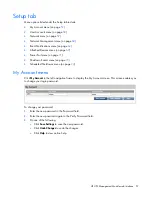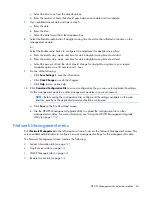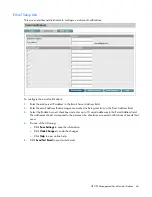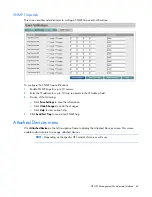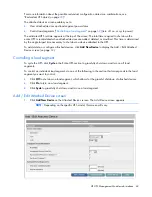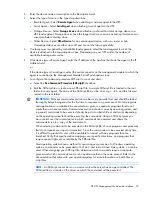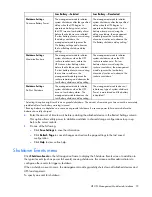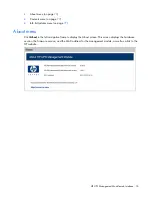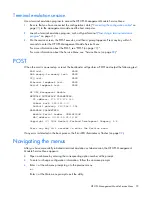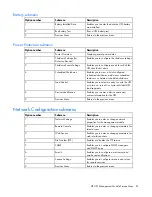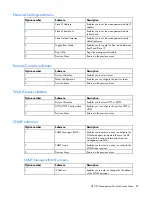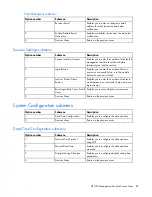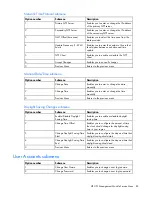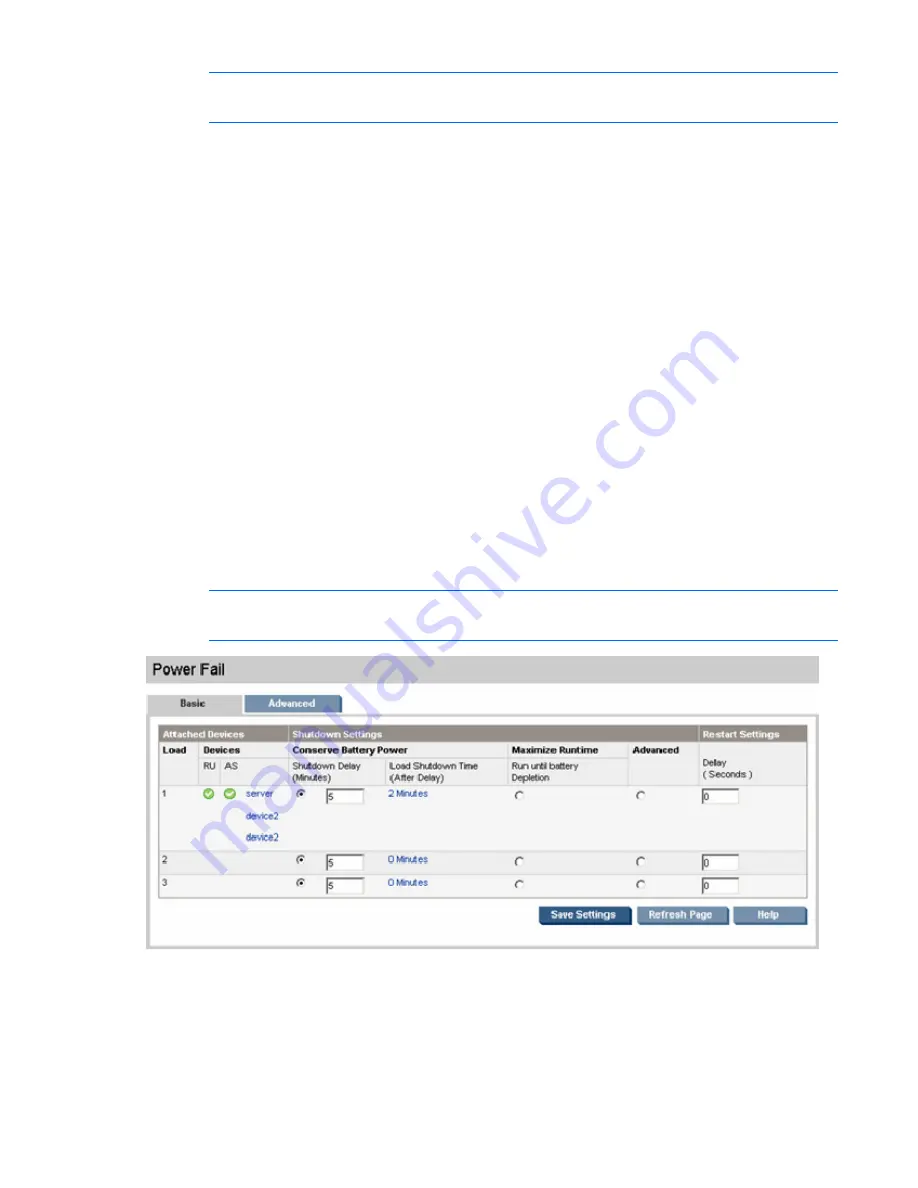
HP UPS Management Module web interface 71
NOTE:
The management module shuts down the operating system gracefully. Use the SDScript
file for other tasks, such as backing up files to tape or shutting down a database.
c.
Enter the estimated time required to complete the procedure in the Execute Command field.
7.
Select the
Run Event Procedure
checkbox to execute the event handling script on the server on which
the agent is installed and running. While the SDScript executes during a shutdown event, the
EVScript executes during a UPS event. You can modify the script content to enable actions such as
logging events in the system log and sending messages to a recipient.
8.
Enter the estimated time required to shut down the server in the Shut Down Operating System field.
9.
Enter the estimated time required to run shutdown commands in the Execute Command field.
10.
Do one of the following:
o
Click
Save Changes
to save the information. The newly added device displays under the specific
load segment. The status icons in front of the device link indicate the redundant configuration
status and the communication status between the agent and the management module.
o
Click
Undo Changes
to undo the changes.
o
Click
Delete Device
to delete the device.
o
Click
Help
to view online help.
Power Fail menu
Click
Power Fail
in the left navigation frame to display the Power Fail screen. This screen enables
administrators to configure how the management module should shut down attached devices in the event
of a power failure.
NOTE:
Depending on the specific UPS model, this screen will vary.
To configure shutdown for the load segments:
1.
Configure the Shutdown Settings for each device using one of the three options in the Shutdown
Settings column.
o
Conserve Battery Power—Use the Conserve Battery Power option to prioritize load segment
shutdown. Select the radio button in the Shutdown Delay column, and enter the number of

